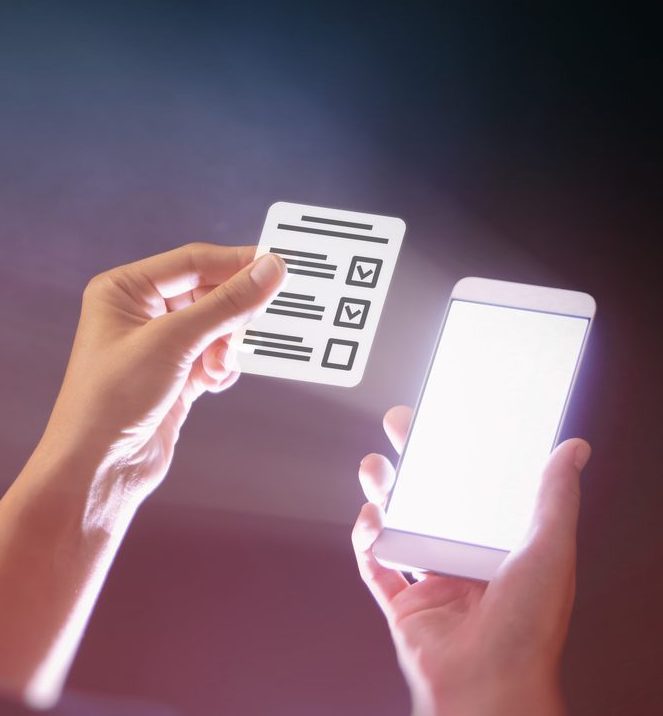Find out the week’s top mobile stories from around the world.
This week.. LinkedIn violated data protection with Facebook ads, key takeaways for adtech players as authorities start to enforce GDPR, Mobile Phones ‘driving 56% of festive online fashion sales’ and much more.

LinkedIn Violated Data Protection With Targeted Facebook Ads
Mobile Marketing Magazine
A report by Ireland’s Data Protection Commissioner has found that LinkedIn breached data protection guidelines by using consumer email addresses in an inappropriate manner. The investigation found that around 18m consumers were targeted using data they had not permitted LinkedIn to use.
LinkedIn, the Microsoft-owned professional networking platform, has faced criticism before for its ability to suggest connections that would seem beyond the scope of its data. Now, the report by the Irish Data Protection Commissioner (DPC), which covers early 2018 up to the implementation of GDPR, has detailed an investigation with concrete evidence of the platform using data in a non-transparent manner.
Read more…
Key takeaways for adtech players as authorities start to enforce GDPR
The Drum
Enfin, the long wait is over. The first GDPR enforcement actions in relation to digital advertising are starting to emerge, ending the increasingly tense lull since 25 May 2018 when the Regulation went into effect. On 30 October, France’s national data protection authority (DPA), the Commission Nationale de l’Informatique et Libertés (CNIL), adopted a Decision addressed to the French start-up, Vectaury, putting the company on notice that if current practices that breach the GDPR are not ended within three months, sanctions will follow.
The CNIL is arguably one of the most influential of the EU’s DPAs, and has a reputation for firm action, especially in relation to online tracking. The Decision concerns what is arguably the most important single issue for the sector: legal bases for processing.
Read more…
Mobile Phones ‘driving 56% of festive online fashion sales’
NetImperative
Black Friday and Cyber Monday 2018 was 36% bigger for online fashion retail than 2017, according to new research.
Consumers are growing more comfortable buying fashion items on their phones reveals new Black Friday and Cyber Monday data from AI-powered retail personalisation platform, Nosto. And for fashion retailers, Black Friday and Cyber Monday 2018 was 36% bigger than last year.
Nosto’s analysis of millions of visits to fashion sites globally suggests mobile accounted for 71% of traffic and 56% of sales revenue (up from 64% of traffic and 50% of sales revenue in 2017) on the two holiday shopping days. Conversion rates are also up on mobile phones from 1.98% last year to 2.28% in 2018
Read more…
Going mobile: Enterprises must step up mobile security
ITProPortal
The modern workplace is evolving, and as a result it’s becoming more complex for IT departments to efficiently manage and secure access to all of a company’s assets. The workplace is no longer confined to a specific office building or a designated company machine. Instead, work is being done on the go — from home, a coffee shop, or a hotel — and oftentimes it’s done with the use of a mobile device, whether it’s company provisioned or not.
With the overall use of mobile apps on the rise, mobile devices in particular are introducing a new set of security concerns for organisations. So, what vulnerabilities do mobile devices introduce, what attacks are aimed at mobile phone users, and what can enterprises do to protect themselves against these threats?
Read more…
Tencent and Netease international mobile revenue soar 382 per cent in 2018
MCVUK
Mobile games revenue from Tencent and Netease has risen 382 per cent in 2018 as both companies compensate for China’s gaming regulations by expanding their international markets.
Despite reports that Tencent is reportedly cutting its marketing budget following a market slowdown driven by the regulatory disruption in China, business information provider IHS Markit (thanks, GamesIndustry.biz) reports international mobile game revenue has grown year-over-year by 382 per cent since January 2018, jumping from $78 million to $376 million.
Netease’s growth was the greatest of the two companies, taking 72 per cent of the combined revenue. According to IHS Markit, PUBG Mobile has only contributed 2 per cent to Tencent’s total mobile business this year.
Read more…
Adoption of mobile payment shifts consumer spending patterns, habits
phys.org
Paying for a cup of coffee with a smartphone instead of a credit card is gaining prominence among consumers—and is disrupting their spending patterns and consumption habits, according to new research co-written by a University of Illinois expert who studies operations management.
Although paying for purchases in-person with plastic or online through a personal computer still dominates among consumers, the rapid adoption of paying for consumer goods with a smartphone affects the overall transaction amount and frequency of purchases, said Yuqian Xu, a professor of business administration at Illinois.
By studying data from Alipay, China’s most popular mobile payment platform, the research explores the mechanisms behind mobile payment adoption and how the mobile payment channel affects other traditional payment channels.
Read more…
Africa’s truth: Mobile has created ‘no-line’ marketing
The Media Online
The term ‘no-line’ best describes the impact mobile has had on marketing and communications in Africa.
I first interacted with the term ‘no-line’ a year back in an in-flight magazine. I found it intriguing as it referenced the ubiquity of communication and messaging in what was a truly African context.
Interestingly enough, I went on to interact with this no-line concept when I spent a night at the Mojo Hotel in Cape Town. Here, I found that different worlds no longer collide, as is the classical saying, but melt effortlessly into one another. Not only was I in a hotel, I was in a short stay parking, a farmer’s style market, a food court and a concert venue. There was no boundary between each of the amenities and it made for a pleasant and resplendent experience. I believe ‘no-line’ best describes the impact mobile has had on marketing and communications in Africa.
Read more…
India’s mobile subscriber base to touch 1.42 billion by 2024; 80% of users to have 4G connections: Report
FirstPost
India’s mobile subscriber base is expected to reach 1.42 billion by 2024 and 80 percent of users are likely to have 4G connections, according to the Ericsson Mobility Report released Tuesday.
Also, a significant uptake of much talked about 5G services is expected to commence from 2022 in India, it said.
“The Indian government is saying that 5G will be introduced in 2020, but we expect a significant uptake to commence in 2022 with a projection of 38 million 5G subscriptions in 2024. This represents 2.7 percent of all mobile subscriptions at the time,” Patrik Cerwall, Head of Strategic Marketing – Networks at Ericsson and Executive Editor of Ericsson Mobility Report, said.
Read more…
T-Mobile is launching mobile banking solution ‘T-Mobile Money’
Engadget
T-Mobile is getting back into the mobile banking game. The company is launching T-Mobile Money, a checking account that will offer perks to T-Mobile subscribers. The company hasn’t officially announced the launch of T-Mobile Money, but mobile apps are available for iOS and Android, and the website for the service went live today.
For clarity’s sake: T-Mobile isn’t starting its own bank. Instead, it’s handing the financial duties over to mobile-first banking institution BankMobile, a division of Customers Bank. T-Mobile Money will operate like your standard checking account. You’ll get a Mastercard debit card, a mobile app to manage your money directly and FDIC insurance on balances up to $250,000. Your T-Mobile Money card will also be compatible with NFC payment services like Apple Pay, Samsung Pay and Google Pay.
Read more…
Creating secure digital identities with blockchain, Sovrin style
AEI.org
Hot off the press this week in New Zealand is news that Spark, one of the country’s three mobile-phone operators, has joined a global consortium called Sovrin that aims to create a secure online identity system using blockchain technology.
The Sovrin Network is proposed as “a public service utility enabling self-sovereign identity on the internet.” It is governed by the Sovrin Foundation, a nonprofit established to administer the trust framework under which the network operates. Consistent with the principles of decentralization and collaboration among peers that characterize blockchain, the code base for the venture is open source, and membership of the venture is open to anyone (or any firm) that is prepared to abide by the rules of the “club.”













